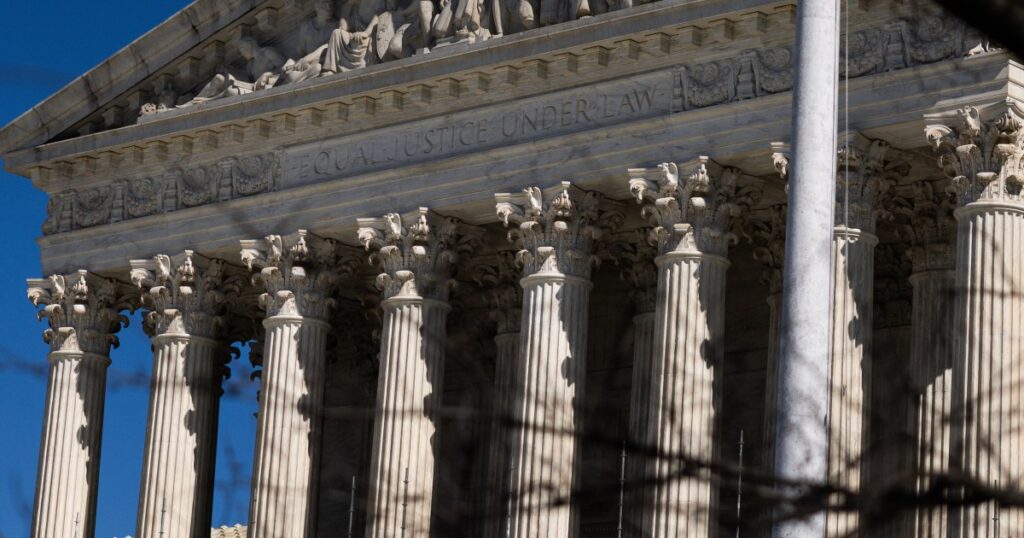WASHINGTON — The Supreme Court on Tuesday declined to hear a Massachusetts student’s challenge to his middle school’s prohibition on him wearing a T-shirt bearing the slogan “There are only two genders.”
The case arose from student Liam Morrison’s dispute with Nichols Middle School in Middleborough.
Lawyers for Morrison at the Alliance Defending Freedom, a conservative Christian legal advocacy group, say students were “bombarded” with messages promoting the view “that sex and gender are self-defined, limitless, and unmoored from biology.”
Morrison believes that view is “false and harmful” and responded in March 2023 when he was in seventh grade by wearing the T-shirt. After he was told to remove it, he later wore another shirt that said “There are [censored] genders.”
Morrison was not punished for wearing the shirts, although he was told he could not wear them in class and was sent home when he refused to remove the first one.
Two conservative members of the court, Justice Clarence Thomas and Justice Samuel Alito, dissented from the decision not to hear the case.
“This case presents an issue of great importance for our nation’s youth: whether public schools may suppress student speech either because it expresses a viewpoint that the school disfavors or because of vague concerns about the likely effect of the speech on the school atmosphere or on students who find the speech offensive,” Alito wrote.
The case raised questions about the extent of free speech rights for public school students under the Constitution’s First Amendment, which was recognized in a landmark 1969 ruling that found students had the right to wear armbands protesting the Vietnam War.
School administrators point to the student dress code, which bars any “hate speech or imagery,” saying they were merely enforcing those requirements in order to avoid disruption in school.
Morrison’s lawyers say the dress code’s restrictions on speech are unconstitutional.
Both a federal district court judge and the Boston-based 1st U.S. Circuit Court of Appeals ruled in favor of the school.
The appeals court concluded that based on the 1969 ruling, school officials can bar “passive and silently expressed messages” that demean other people even if the expression at issue does not target a specific student.
The Supreme Court is currently weighing a case from Maryland over an attempt by parents to ensure elementary school children can opt out of LGBT-focused books that might be read in class.

